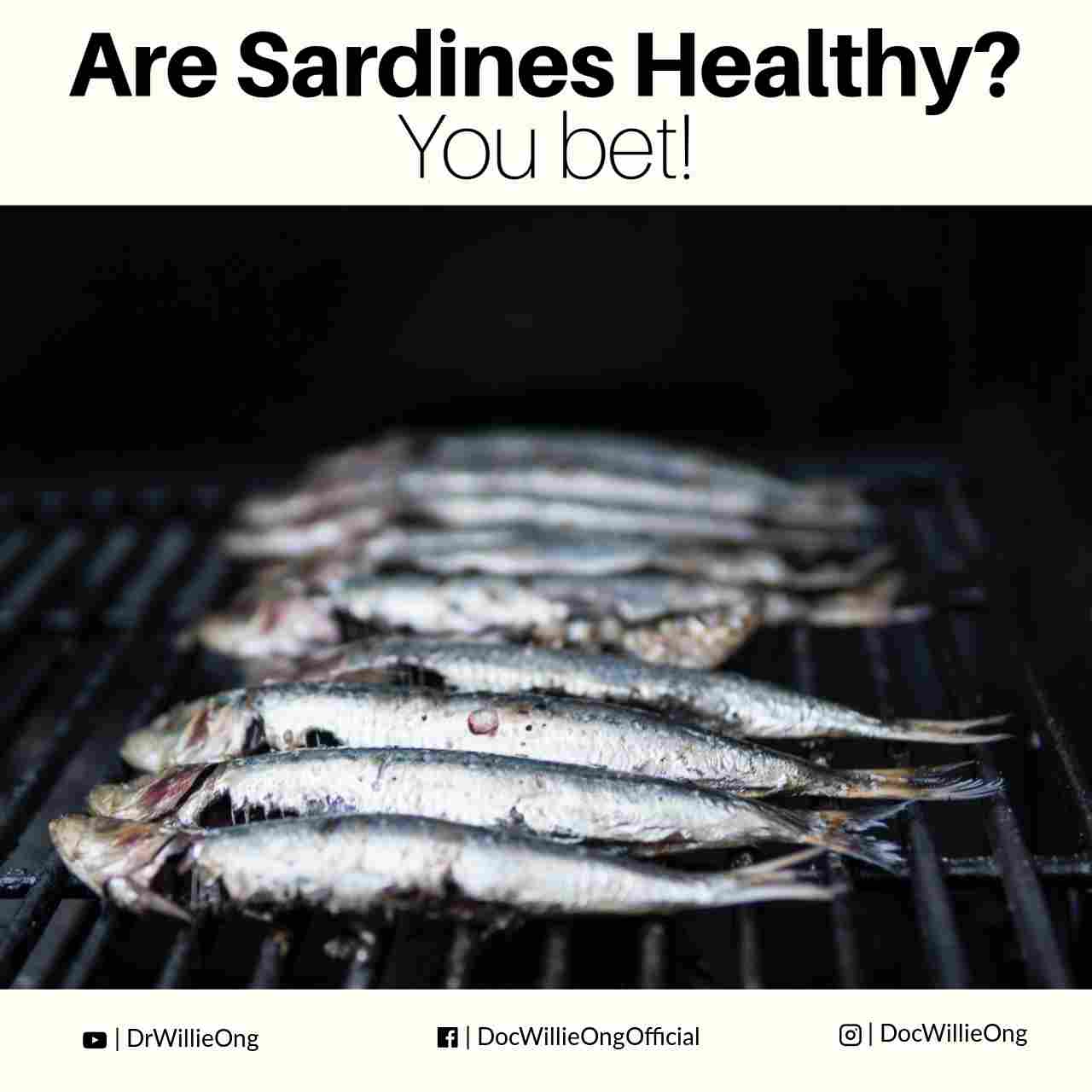Dr. Willie T. Ong (Internist-Cardiologist)
Some people look down on the lowly sardines. It’s cheap, it’s canned and it’s the poor man’s diet. Hence, it’s easy to conclude that sardines are not good for you.
However, medical and nutrition experts agree that such is not the case. In fact, sardines are pound-for-pound one of the world’s healthiest foods.
Sardines are a group of small oily fish related to herrings. Years ago, sardines were harvested off the coast of Sardinia, an Island in the Mediterranean. Sardines contain vitamins and minerals proven to benefit your heart, memory, skin, joints, and give you energy. Here’s why sardines are good for you:
Omega 3 Fatty Acids:
Sardines are rich in healthy Omega 3 fats, which help increase your good cholesterol and prevent a heart attack. Omega 3 also nourishes the skin and prevents wrinkle formation.
Coenzyme Q10:
Sardines have high levels of Coenzyme Q10, a powerful antioxidant that helps strengthen one’s immune system.
Calcium:
The calcium in sardines keeps your bones strong and healthy. If you exercise regularly, this can help strengthen your bones and prevent osteoporosis. Three ounces (one serving) of sardines gives as much calcium as a glass of milk, especially if you eat the soft edible bones.
Vitamin D:
Sardines are one of the few food sources that contain vitamin D. In fact, it has thrice the daily requirements. Vitamin D works to help the body absorb calcium in food and promote bone growth.
Vitamin B12 (cobalamin) and Vitamin B3 (niacin):
The B vitamins are important for a healthy nervous system, which consists of the peripheral nerves, spinal cord and brain. Adequate intake of Vitamin B12 helps boost energy and produce normal blood cells.
Selenium:
Sardines are a good source of the mineral selenium, a powerful antioxidant. Some studies have linked selenium intake to a lower risk for cancer.
Iron and phosphorus:
A serving of sardines contain 20% of our daily iron needs. Iron is needed for red blood cell production and for people who are anemic. Moreover, sardines contain phosphorus, a mineral that helps the kidneys excrete waste products. Phosphorus is also needed for normal teeth and bones.
For weight control:
For overweight people, one advantage of sardines is that it is low in calories. In addition, sardines are rich in protein, which can be used by dieters on a high-protein, low-carbohydrate diet. Getting your protein needs from fish is much healthier than eating pork and beef.
Safe to eat because they’re low in mercury:
Because of our polluted waters, certain kinds of fish may contain varying amounts of mercury, a poison that is harmful to the brain, nerves, kidneys, eyes and other organs. The US Food and Drug Administration has certified that sardines contain one of the lowest levels of mercury, which is mainly due to the sardines’ diet of plankton and krill. This is in contrast with sharks and other large fishes with higher mercury levels because they eat other fishes. As a general rule, the smaller fishes, preferably those less than 12 inches long, are safer.
Sardine’s Nutritional Values:
A small can or three ounces of sardines contain approximately 134 calories, 15 grams of protein, eight grams of total fat, and zero carbohydrates. When canned in water, one serving size has only 120 calories and seven grams of total fat. However, when sardines are packed in oil, you get more fat at nine grams total fat and two grams saturated (or bad) fat.
Just a reminder: Sardines contain purines, which should be limited or avoided in patients with gout and chronic kidney disease. Sardines also contain little amounts of vitamin A and C, which you should be getting from your fruits and vegetables.
Try Sardines in Tomato Sauce
Sardines packed in tomato sauce are very nutritious and the best combination. Tomatoes, such as those found in ketchup and tomato sauce, are extremely high in antioxidants, especially carotenoids like beta-carotene and lycopene. It may reduce your risk for heart disease, prostate cancer and other cancers of the digestive tract. Tomatoes contain vitamin C, E and potassium too.
There are many ways to prepare sardines.
You can put them in a pan-de-sal for a snack, toss them in your salad or use sardines (instead of meatballs) with your spaghetti. You may eat sardines with rice, too. Add a healthy dose of vinegar or lemon (calamansi) to spice it up.
So, the next time you see those little canned sardines, I hope you will consider them as a good source of protein, vitamins and minerals for you and your family.



